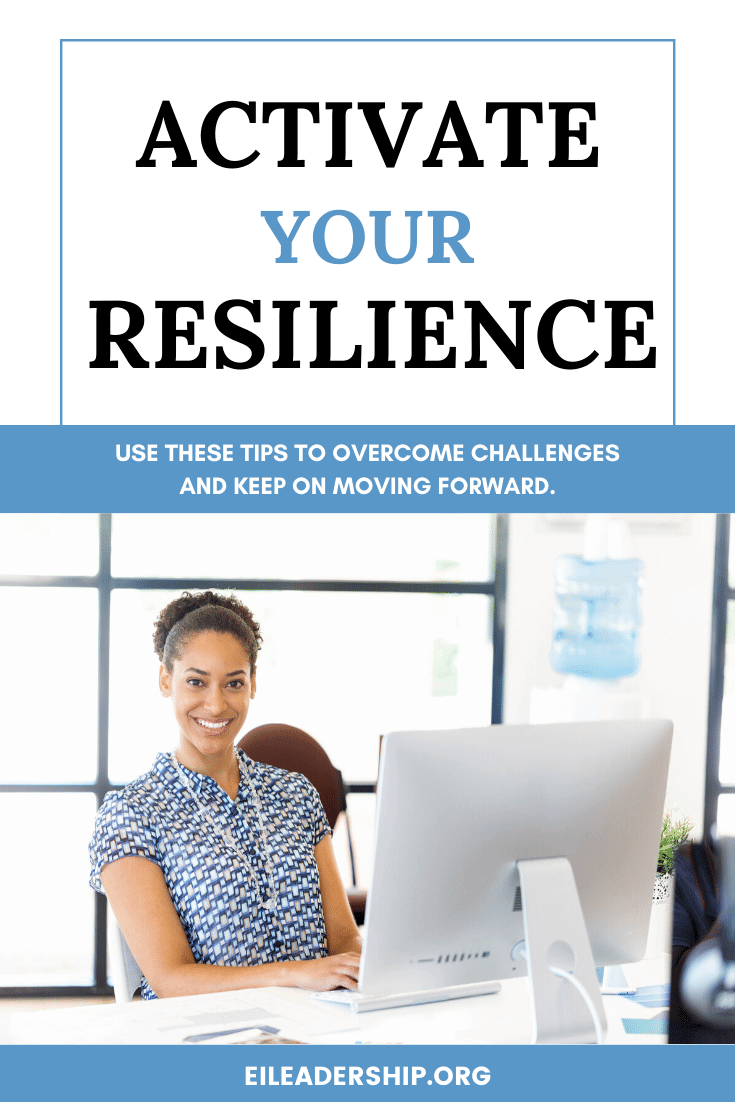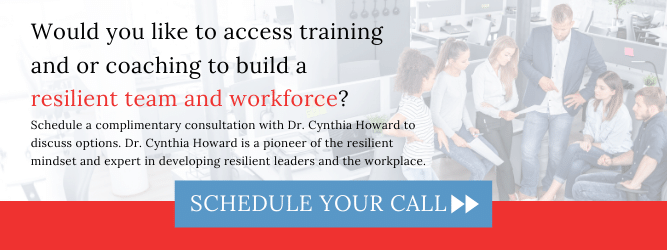
Activate Your Resilience
Never before has resilience been so important.
Do you remember Thomas Edison’s famous 10,000 “failures” when working on inventing the light bulb? He did not see these as failures rather they were “ways that didn’t work.” He had grit, optimism, energy and allowed his resilience to drive him to his ultimate success.
Because of his relentless pursuit of his vision, we have a much different world – literally brighter. What about your life, do you have the resilience you need to keep going; to not just get through this disruption but to grow through it?
In this article, I want to dig into resilience: what it is, why we need it, and how to develop it; so that you can overcome the challenges and keep on moving forward.
What is Resilience?
Most people think about resilience as the ability to bounce back – this is part of this skill set. Resilience is our ability to adapt and look forward despite what is happening all around you. It includes grit, agility, energy, awareness, heart, and optimism.
Think of resilience as capacity, like a battery. When your cell phone is fully charged, you can access all the apps and do so much more with your phone. This is also true for us as human beings and leaders, when we have a fully charged battery, our capacity goes up.
The truth is most people spend more energy in their day than they generate. And this was true even before the current crisis we are all facing.
Resilience is the most important set of skills that has never been formally taught.
Why Do We Need It?
We are living in the digital age and have been overloaded for some time. The level of distraction and disruption to everyday work has compromised the ability to focus and concentrate. Research has demonstrated with this level of distraction there is greater irritability and a false sense of urgency. This puts our nervous system into the stress reaction without any way for the body to apply the brakes and return to a healthy balance. The new normal is stress.
When stress becomes a bucket that we throw everything into that does not go well, it becomes exceedingly difficult to manage. Resilience is directly under your control, and in an uncertain world, your first step is to control what you can and let go of the rest.
How do you develop it?
Breathe.
You are breathing anyway; it is time to breathe deliberately. When in a stress reaction, breathing becomes less efficient, it is shallower and is designed for short term fight or flight. There are several techniques to breathe more slowly and deeply than normal and unhook from that stress reaction. Check out this article for one of those techniques.
Check your mindset.
Are you focused on the problem and lost in a negative mindset? This too is part of that unchecked stress reaction. Survival requires a limited perspective, fight, or flight. This primitive survival mindset does not allow for an expanded perspective about what is possible, yet, if you are not aware of what is going on inside you, you will not recognize when you get cynical, negative and limited in your thinking.
One leading researcher, Martin Seligman, also called the father of the positive psychology movement, identified three main ways we talk to ourselves that inhibits optimism. These perspectives are:
- Do you tell yourself, “nothing will ever change,” or “my boss never likes what I do?”
- When emotions are not managed, it can feel like the problem is bigger than you and you end up with a confidence crisis. So instead of thinking/ feeling “I am not good at this and need training,” you tell yourself (or feel) “I am not good at anything.”
- This is when you feel that whatever is happening is because of something you did, and you take responsibility for it. A resilient mindset sees the event as something is happening right now – and they have the confidence they can get through it.
Having a positive viewpoint of the future is critical to resilience. Resilience and emotional intelligence overlap. The most critical elements of a strong emotional intelligence are optimism, self confidence (authentic confidence, not bravado) and assertiveness.
Resilience is a set of skills that take practice. Begin with your breath and bring yourself out of that stress reaction so you can access the highest part of your brain, check your thinking, is it forward focused or stuck on the problem and what happened?
Make a decision to do something different as a result of this crisis. Choose to activate your resilience.
Take the Quiz! How Resilient Are You?
Use the 5 point scale and select your best answer based on how you are feeling right now. The higher your score (max is 50) the more resilient you are.


